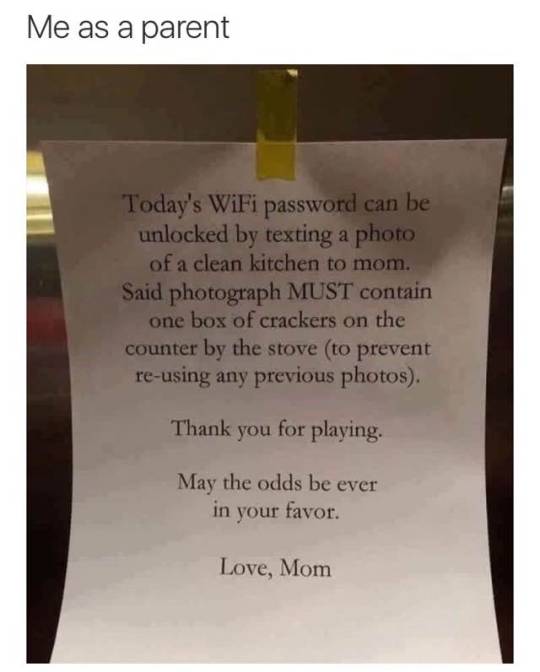Text
sitting here thinking about how literally insane i was when my treatment hormones were running out like im sorry but hormone treatments are literally necessary to mental and physical health bottom line. there is no debating this with anybody and it doesn’t matter if you’re getting them for cosmetic reasons or sexual performance reasons or health reasons or whatever… hormones are important because they let us stay sane too. hormones are important as a part of any treatment plan. saying one group of people is “taking all the hormones” ignores the very real issue of our healthcare ignoring how important hormone care is to individual human beings in the first place and thus allowing shortages to happen because healthcare is so often dictated by capitalist notions of supply and demand rather than literal necessity
31 notes
·
View notes
Text
you weren't a bad kid. you had unmet needs.
9K notes
·
View notes
Text
My face is having uncontrollable spasms. Great. It hurts really, really, really bad.
I think part of why I have trouble explaining pain to the doctor is when they ask about the pain scale I always think “Well, if someone threw me down a flight of stairs right now or punched me a few times, it would definitely hurt a lot more” so I end up saying a low number. I was reading an article that said that “10” is the most commonly reported number and that is baffling to me. When I woke up from surgery with an 8" incision in my body and I could hardly even speak, I was in the most horrific pain of my life but I said “6” because I thought “Well, if you hit me in the stomach, it would be worse.”
347K notes
·
View notes
Text
One of the most useful things I’ve learned about recovering from trauma is that my decisions need to be judged according to the incomplete information that was available to me at the time.
So, say I’m deciding whether to eat chicken at a restaurant. All evidence is that it’s a good idea. I’m hungry for chicken, and I usually feel good after eating it.
I eat the chicken, and I get food poisoning. The resulting illness causes me to fall short of responsibilities, and creates numerous problems for me and the people who depend on me.
What happened?
Trauma brain says: “This happened because I am Bad At Making Decisions. If I had made The Right Decision and not eaten chicken, everything would have been fine.”
Recovery brain says, “According to the information that was available to me, the chicken was unlikely to make me sick. Eating chicken was a Good Decision with Bad Consequences. This happened to me because I had incomplete information.”
The “trauma brain” response makes all decisions really hard, because each decision involves the prospect of being judged by a future self that has more information.
“Should I buy the $2 mouse pad or the $3 mouse pad? If I buy the cheaper one and it doesn’t work well, it will be my own fault for not buying a better quality one…”
(Then I might end up paying myself $1-per-hour to agonize over which mouse pad to buy, which is probably an ACTUAL unwise course of action.)
But if I foster the “recovery brain” response, I can start to trust that my future self will judge my decisions kindly.
“If I buy the cheap mouse pad and it doesn’t work, then I only gambled $2 on it. If I buy the $3 one and even it doesn’t work, then I’ll have more closely guessed how much I need to pay for a mousepad of sufficient quality.”
And then later when the mousepad doesn’t work: “Well, that didn’t work. At least I made a decision. The outcome has given me more information about the options available to me going forward.”
(Meta level: Decisions you made prior to reading this post about how to treat yourself were probably good given the information you had access to about trauma and recovery!)
tl;dr: Bad results are not always evidence of bad decisions. Give yourself the benefit of the doubt about why you do what you do.
40K notes
·
View notes
Note
Hey, I've been practicing DBT skills for a couple years now, and I try my best to maintain consistency, but for some reason I still struggle coping with feelings of shame and guilt- especially when I'm called out for my actions. This doesn't tend to happen that often because usually I'm a very careful person, and I do my best to be mindful of everything I do and say, but nobody is perfect. Are there coping methods for these feelings that you or others you know have found particularly useful?
Hello!!! This is such an awesome question! Shame and guilt can be so insidious and destructive. Life without them is a revelation tbh.
My answer to this is that it’s all about SELF-COMPASSION. Being compassionate to oneself can go a long way to eliminating shame and guilt. I once did a unit on self-compassion in therapy, so I’m going to summarize some of the worksheets I was given then.
PART 1: what to do when you feel shame or guilt
-practice radical acceptance: accept that you’ve made a mistake or done something you don’t like as fact. don’t judge it as good or bad, just acknowledge you’ve done it.
-practice mindfulness of pain and self-criticism: observe and describe your thoughts and feelings
-refrain from self criticism: notice those critical thoughts. if you find yourself lingering on them, try to move on to other thoughts.
-recognize your common humanity: everyone makes mistakes. no one gets everything right, no matter how much we want to. this is human.
-remember your mistakes or failures do not define you: you are more than that.
-cultivate a feeling of kindness toward yourself: see part 2
PART 2: self-soothing - when in a spiral
-develop and use a compassionate image: something you find soothing that you can bring up when you need to (mine is sitting by a stream or lake)
-focus on your breath: focus your entire attention on your breathing. this helps pause the spiral
-step back from your self-critical part: conceptualize the part of you that is critical and imagine taking a step back from it. if this sounds like bs to you, try telling that part of you to take a damn nap.
-develop and use an image of wise mind: I can’t say I’ve succeeded here but you’re supposed to imagine the part of you governed by calm wisdom and non-judgment and then focus on that part. I might start thinking of this in Star Wars terms a la Force.
PART 3: cultivating self-compassion
as always, there’s an acronym- SACRED
-Softness with self: agree to be softer with yourself. encourage yourself. use a kind voice. do not self-harm. touch yourself gently, lotion that bod, dress in soft clothing, wear fluffy socks etc. treat yourself as you would a loved one.
-find five positive Attributes: make sure these 5 things are true in your wise mind and you believe them. write them down. revisit them when you hate yourself.
-Create a kind environment: surround yourself with kind people whenever possible. decorate your home and room and desk and body with things that you love, that inspire you. put photos of your support system around. treat. yo. self. make special plans with yourself (hit me up if you need recs for this category I am a CHAMP)
-Radical self-acceptancE: again, accept that you are human. practice willingness to embrace your faults and skills. compare your self acceptance with how you might react to someone else. notice when you don’t let yourself off the hook compared to someone else doing the same.
-Deeply like yourself: when you notice hatred or intolerance, turn your mind to your commitment to like yourself. notice interfering thoughts and feelings and step away from them. LIKING YOURSELF IS A STEP TOWARD RECOVERY AND IS WORTH WORKING ON ACTIVELY. IT DOES NOT MAKE YOU SELF CENTERED BUT WILL CONTRIBUTE TO YOUR RECOVERY.
Part 3 really works y’all. Trust me.
One final thing I recommend is creating a brand for yourself in your mind. I used to be really ashamed of being so emotional, having strong reactions, and crying from them. But then I created a self brand (lol) centered on those very things. So now when I’m sobbing bc some bag-pipes just passed me on the street, I think ‘well this is very Kat’ and shrug bc this is what I’m supposed to be doing, this is who Kat is. idk if that makes sense but creating a brand helped me a lot. Then people EXPECT this stuff from me so I don’t have to feel shame for springing it on them. I mean you could also just learn to love yourself but I consider this a baby step.
Guilt and shame can make life so heavy and toxic but I hope these tips help!
I wish you all the best and please feel free to ask follow up questions!
xxKat
417 notes
·
View notes
Note
Have you heard of or looked into the RO-DBT research? What's your opinion on the concept of RO DBT?
Hi!
I’d actually never heard of RO-DBT before, I had to look it up!
For those who don’t know, Radically Open Dialectical Behavior Therapy is a new type of DBT. Whereas regular DBT treats on impulse control disorders, RO DBT treats disorders of over-control. It focuses on receptivity and openness, flexibility and social connectedness. It’s meant to help treat cluster A and C personality disorders as well as chronic depression and anorexia.
Here is how it compares to DBT.
It seems to be quite new (The Book doesn’t come out until next year!) but research has been done on it. I’m no expert but I think it looks super promising as a way to treat restrictive behaviors if it finishes going through all the certification and whatnot required to make it a fully fledged and accessible program.
As someone who struggles with restrictive symptoms (as well as previous impulsive symptoms) it sounds like an interesting new treatment! Thank you for bringing it to our attention!
Does anyone else have experience with RO-DBT?
xxKat
186 notes
·
View notes
Text
skills for coping with harsh negative judgments about the self, even something like the practice of asking “who profits off of this emotion?”, are not meant to make the experience just go away. they’re meant to interrupt our automatic thought processes, to put some space between us and our programming. they make the cracks which let a little light in.
it took many years of messaging to fill us with shame about ourselves and our bodies, and to indoctrinate us to blame ourselves for failing to meet oppressive standards which we were never given the choice to assent to or reject. it will also take years, and a different kind of messaging, to undo that damage.
the new kind of messaging–like critical-theoretical questions and honest affirmations–can become habitual with time and practice. even then they might not always feel true, tho you know intellectually that they are. it’s okay and in fact very productive to say “i know one thing, but i’m feeling another”. that’s all we can do. it’s this process thru which our sense of self and embodiment moves toward freedom
5K notes
·
View notes
Quote
More commonly, repeated abuse is not actively sought out but rather is passively experienced as a dreaded but unavoidable fate and is accepted as the inevitable price of relationship. Many survivors have such profound deficiencies in self-protection they can barely imagine themselves in a position of agency or choice. The idea of saying no to the emotional demands of a parent, spouse, lover, or authority figure may be practically inconceivable. Thus, it is not uncommon to find adult survivors who continue to minister to the wishes and needs of those who once abused them and who continue to permit major intrusions without boundaries or limits.
Judith Herman, Trauma and Recovery
(via thatdiabolicalfeminist)
2K notes
·
View notes
Quote
Be gentle with yourself. You are a child of the universe no less than the trees and the stars; you have a right to be here.
Aurelia Plath (advice from Sylvia Plath’s mother), qtd in Sylvia Plath’s The Unabridged Journals of Sylvia Plath
(via wordsnquotes)
5K notes
·
View notes
Text
Shoutout to the survivors of hidden, unconventional, or non-blatant abuse.
To those whose abusers constantly threatened but rarely acted on their words.
To those whose abusers would treat them well at times.
To those whose abusers would tell them the abuse was “for the best”, “out of love”, or “in your best interest”.
To those whose abusers told them the abuse was just a “joke”, or “prank” or “game”.
To those whose abusers would stop talking to them as a form of punishment.
To those whose abusers would still feed and shelter them, yet completely emotionally neglect them.
To those whose abusers gaslighted them into believing the abuse never happened.
To those whose abusers used uncommon techniques or methods to hurt them.
To those whose abuse was swept under the rug because it was ‘unbelievable’ or ‘impossible’.
To those who do not have proof of the abuse they endured.
Have you always believed the abuse was actually normal parenting? Me too. Do you feel like you’re making it up, or exaggerating stuff? Me too.
Guess what? Those are lies. Your abuse is valid. Your pain is valid. You are not fake. You are not alone.
18K notes
·
View notes
Photo
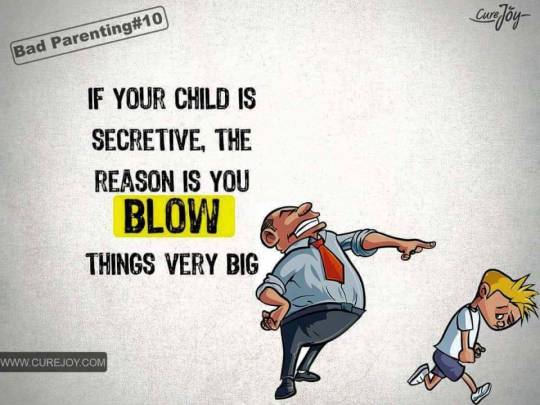
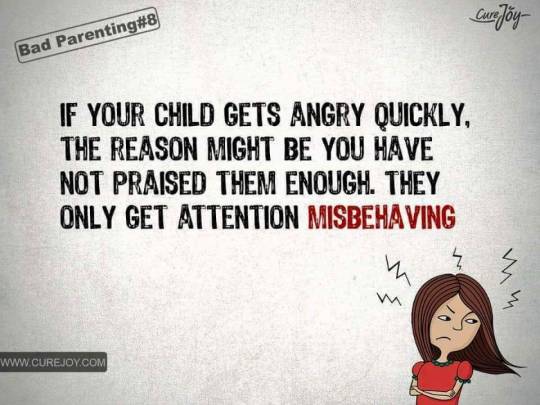

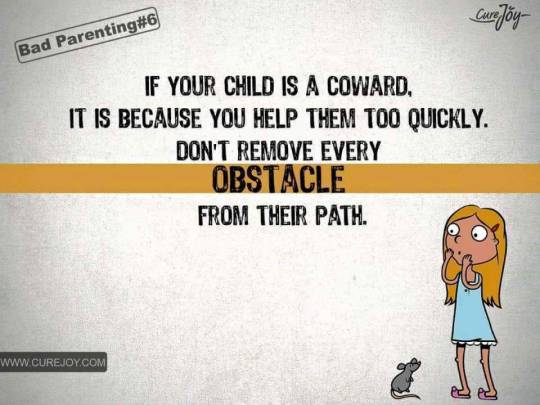

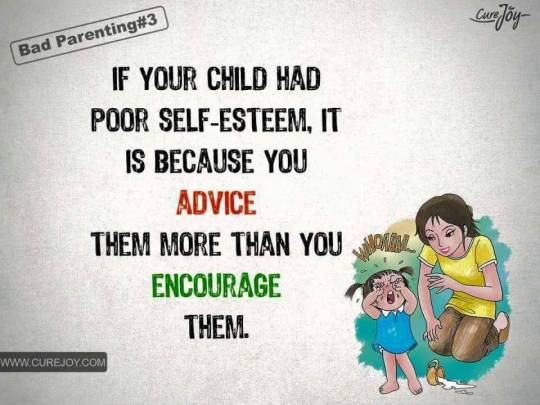


I feel like a lot of people in tumblr are victim of this kind of parenting 😔😔😔
81K notes
·
View notes
Text
your girlfriend going through your phone without your consent is not okay
your girlfriend logging into your social media accounts and going through your messages without your consent is not okay
your girlfriend texting/messaging girls in your contacts or friend’s list and pretending to be you in order to get information out of them is not okay
your girlfriend telling you that you’re not ‘allowed’ to have other girls as friends is not okay
your girlfriend constantly calling you, texting you, and demanding you be in constant contact with her every second of the day so she can monitor your activity is not okay
your girlfriend putting an actual GPS tracker on your phone or car without your consent in order to monitor you is not okay
your girlfriend making you sign an actual honest to fucking god CONTRACT listing out how she demands you always do what she says is not okay
allll of these are just a few examples of things i regularly see happen in relationships but are normalized and even joked about because it’s a girl that’s doing them rather than a guy. these are all examples of controlling, abusive behavior but there are so many people who think they’re a normal and acceptable part of being in a relationship—girls who think it’s OKAY to do these things to their partners—and that’s fucked up.
none of this is okay. none of these behaviors are normal things that happen in healthy relationships. none of these are things you should have to deal with from the person you’re dating. please do not put up with this shit because we are in a culture that tells us these kinds of things aren’t a big deal—they ARE a big deal, they ARE an issue, and you deserve better than have to put up with it.
431 notes
·
View notes
Text
it’s crucial to realise that abuse cannot be reduced to a list of contextless behaviours. abusive actions are abusive, not because of their inherent nature, but because of the place that they take in a larger pattern of control or intimidation. if you try to paint a picture of what an abuser acts like without reference to these larger patterns, you’re inevitably going to describe a lot of the ways in which people who are being abused act–and many abusers know how to take advantage of that.
for example, an abuser may accuse their victim of witholding sex, saying that their victim is strategically denying them sexual access in order to control them. this falls into a larger pattern of the abuser feeling a sense of ownership towards their partner, feeling entitled to sexual access, and resenting their partner for exercising agency over their own body (& overwhelmingly, cases such as this involve a male abuser and a female victim). they may become angry when their partner understandably doesn’t want to have sex with them after they’ve been abusive towards them in other ways.
however, it’s also true that many abusers do strategically use sex as a control tactic, using their victim’s need for intimacy against them and refusing sex specifically as a form of punishment for other perceived slights. and the mere fact that one person is refusing sex with another person cannot tell you which of these, if either, is occurring.
similarly, abusers often use physical intimidation tactics such as stomping about, slamming doors, and breaking objects in order to create fear in their victims (and the expectation that perhaps they’re going to be hurt, whether or not the abuser has been physically violent before), or to punish them for stepping out of line. they’ll later claim that they just “lost it.”
but it’s wholly possible for victims of abuse to slam doors or to break objects out of understandable frustration with the terror to which they’re being subjected. without a reference to the overall dynamics of power in the relationship–whether or not the door was slammed in order to create fear, whether or not the person who broke an object also uses other tactics of manipulation and intimidation, and often whose objects were broken (abusers may claim that they “lose control” of themselves, but they conveniently seem to destroy only things that belong to their partners)–you can’t say that breaking an object = abuse.
& you have to keep in mind the fact that many abusers keep their victims on the defensive by accusing them of using their own manipulative tactics. someone (likely a man) who controls their partner through checking out other people & engaging in affairs may call their partner crazy or jealous or controlling for trying to put a stop to the behaviour–all the while being highly jealous and controlling of their victim, strategically fabricating suspicions about their infidelity in order to take the focus off of their (the abuser’s) behaviour.
or perhaps someone really is jealous–but feelings of jealousy do not automatically equal abuse in the absence of abusive behaviour relating to that jealousy. & you can apply the same concept to things such as crying or showing other signs of emotional upset when confronted with criticism, asking your partner to contribute more around the house, or a great deal of other things that I could name: these could all be manipulation tactics used by an abuser, responses to abuse manifested by victims (which the abusers may then spin around as evidence that they’re the ones being abused), or examples of simple conflicts that arise in nonabusive relationships that can be worked through in a constructive way.
abusers know how to manipulate shallow or inaccurate understandings of how abuse operates to the detriment of their victims, and they benefit from descriptions of abuse that abstract it away from dynamics of power and control. let’s avoid making their jobs easier for them.
9K notes
·
View notes
Text
TO QUEER PEOPLE WHO ARE ABUSED PHYSICALLY, EMOTIONALLY, VERBALLY, ETC, BY THEIR PARENTS.
It’s not your fault, you don’t deserve this sort of pain as for any discriminated queer person. Your parents are supposed to love and support you as they have since they day you came into this world. You are forever beautiful and protected by this community. There will always be people you can communicate with to give you advice on what to do, I’m sorry your parents treat you this way. You matter as much as anyone else, your health matters and your happiness. Your identity is forever valid. Take care of yourself.
(Please add anything if I missed something. I feel like this isn’t enough I’m saying.)
2K notes
·
View notes
Text
An important rule of thumb: Any community that says “Oh, we’re different from all those other communities! They’re full of predators and abusers, but we have none?”
Is fucking full of predators. No exceptions.
The moment you define your community as a predator-free space, you stop looking for them - which gives them excellent cover. Don’t do that, folks.
320 notes
·
View notes
